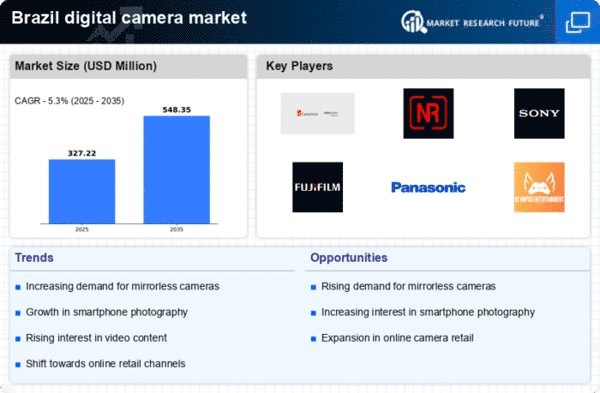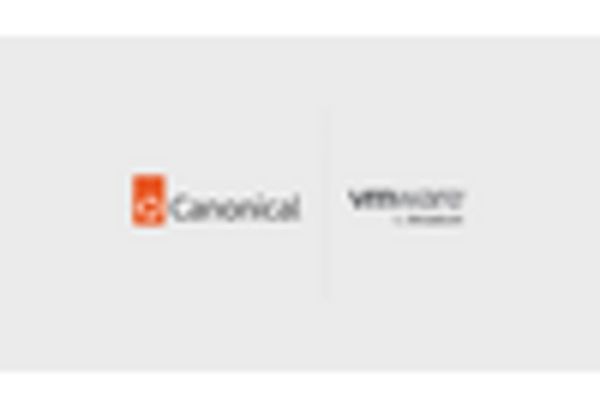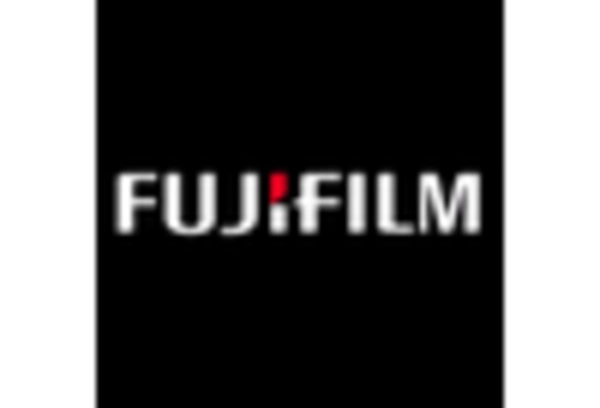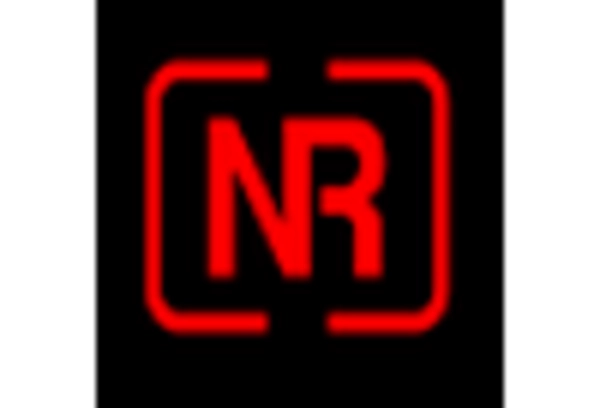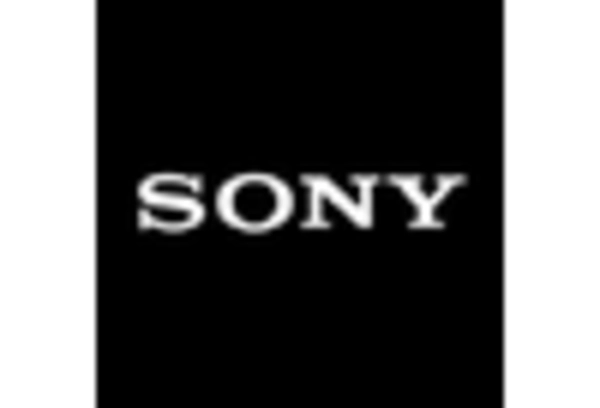Growing Demand for High-Quality Imaging
The digital camera market in Brazil experiences a notable increase in demand for high-quality imaging solutions. As consumers become more discerning, the preference for cameras that offer superior image resolution and advanced features intensifies. This trend is particularly evident among professional photographers and enthusiasts who seek equipment that can deliver exceptional results. The market data indicates that sales of high-end digital cameras have surged by approximately 15% in the last year, reflecting a shift towards premium products. This growing demand is likely to drive innovation within the digital camera market, as manufacturers strive to meet the expectations of a more quality-conscious consumer base.
Influence of Social Media on Photography
The rise of social media platforms in Brazil significantly impacts the digital camera market. As individuals increasingly share their photographic experiences online, the need for high-quality images becomes paramount. This trend encourages consumers to invest in better camera equipment to enhance their online presence. Recent statistics suggest that around 70% of Brazilian users actively engage in sharing photos on social media, which in turn fuels the demand for digital cameras that can produce visually appealing content. Consequently, manufacturers are likely to focus on features that cater to this audience, such as connectivity options and user-friendly interfaces, thereby shaping the future of the digital camera market.
Emergence of Content Creation as a Profession
The emergence of content creation as a viable profession significantly influences the digital camera market in Brazil. As more individuals pursue careers in photography, videography, and social media content creation, the demand for professional-grade cameras increases. This trend is supported by the growing number of influencers and content creators who rely on high-quality equipment to produce engaging material. Market Research Future indicate that the segment of consumers investing in professional cameras has grown by approximately 20% in recent years. This shift not only drives sales in the digital camera market but also encourages manufacturers to develop products tailored to the needs of this expanding demographic.
Technological Advancements in Camera Features
Technological advancements play a crucial role in shaping the digital camera market in Brazil. Innovations such as improved autofocus systems, enhanced low-light performance, and advanced image stabilization are becoming standard features in new models. These developments not only attract professional users but also appeal to amateur photographers seeking to elevate their skills. Market analysis reveals that approximately 60% of consumers prioritize technological features when purchasing a camera. As a result, manufacturers are compelled to invest in research and development to stay competitive, ensuring that the digital camera market continues to evolve in response to consumer expectations.
Increased Accessibility of Photography Equipment
The digital camera market in Brazil benefits from increased accessibility to photography equipment. With the proliferation of online retail platforms and competitive pricing strategies, consumers find it easier to purchase cameras and accessories. This accessibility is further enhanced by financing options and promotional offers, making high-quality cameras more attainable for a broader audience. Recent data indicates that online sales of digital cameras have risen by 25% over the past year, highlighting a shift in consumer purchasing behavior. This trend suggests that as more individuals gain access to photography equipment, the digital camera market is likely to expand, fostering a culture of photography among the general public.

